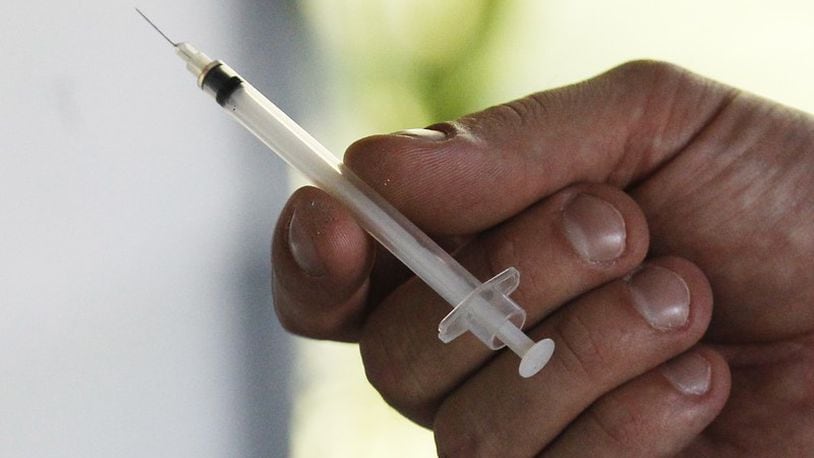In its first year, 92 percent of the overdose patients that met with the quick-response team were able to enter a treatment program, said Middletown Fire Chief Paul Lolli. However, he said the city does not have the capability to track the success of their treatment.
Dr. Scott Rasmus, BCMHARS executive director, said the agency is working to start its mobile response team in July after receiving a $660,000 grant from the federal 21st Century Cures Act.
“Middletown has a great team that’s getting people into treatment,” Rasmus said. “Each person has a choice of whether to obtain treatment, and their quick response team has been very successful.”
He said, “Hopefully, these quick-response teams will reduce the cost burden on cities like Middletown to reduce the number of (EMS) responses for those who overdose.”
Rasmus said the overdose death rate was 14 percent in 2016 and so far in 2017 it’s about 9 percent.
The cities of Oxford and Hamilton also use quick-response teams to help people get into treatment.
Rasmus disagreed with comments made last week by Middletown City Councilman Dan Picard, who suggested that maybe EMS units should not respond to people who have overdosed two previous times.
“My thought is that if a life is at risk, why wouldn’t you do everything in your power to try to save that life?” Rasmus asked. “Obviously it’s a life and we need to support life, but we need to look at the alternatives.”
He also pointed out that if an EMS unit is being called for the same person with previous overdoses, how do you know if that person is having another type of medical emergency? You’d still need to respond, he said.
“A life is a world of possibilities,” Rasmus said. “Who knows what impact that person might make in the future. Who knows, that person could very well recover from their addiction and become the president of a Fortune 500 company.”
According to Middletown’s Lolli, opiod overdose runs made up 5.7 percent of the city’s EMS run volume in 2016.
Lolli said that, so far in 2017, opioid overdose runs have made up 12.4 percent of the city’s EMS run volume.
As of June 17, Middletown EMS units have made 577 opioid overdose responses that resulted in 51 deaths. In 2016, city EMS units made 532 overdose responses with 74 deaths recorded.
“We have a moral and ethical obligation to make those runs,” Lolli said.
About the Author
